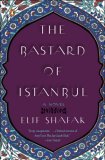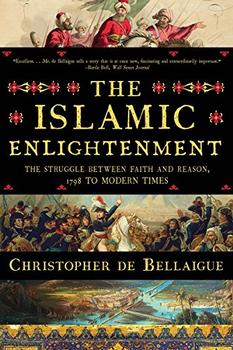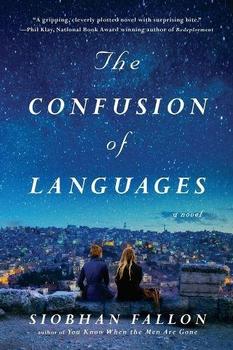Summary | Excerpt | Reading Guide | Reviews | Beyond the book | Read-Alikes | Genres & Themes | Author Bio

From one of Turkey’s most acclaimed and outspoken writers, a novel about the tangled histories of two families.
In her second novel written in English, Elif Shafak confronts her country’s violent past in a vivid and colorful tale set in both Turkey and the United States. At its center is the “bastard” of the title, Asya, a nineteen-year-old woman who loves Johnny Cash and the French Existentialists, and the four sisters of the Kazanci family who all live together in an extended household in Istanbul: Zehila, the zestful, headstrong youngest sister who runs a tattoo parlor and is Asya’s mother; Banu, who has newly discovered herself as a clairvoyant; Cevriye, a widowed high school teacher; and Feride, a hypochondriac obsessed with impending disaster. Their one estranged brother lives in Arizona with his wife and her Armenian daughter, Armanoush. When Armanoush secretly flies to Istanbul in search of her identity, she finds the Kazanci sisters and becomes fast friends with Asya. A secret is uncovered that links the two families and ties them to the 1915 Armenian deportations and massacres. Full of vigorous, unforgettable female characters, The Bastard of Istanbul is a bold, powerful tale that will confirm Shafak as a rising star of international fiction.
Shafak's leisurely, gently humorous narrative of two families of strong women makes for easy, entertaining and elucidating reading - it is one of those very rare books that actually improves upon reflection...continued
Full Review
 (1538 words)
(1538 words)
(Reviewed by BookBrowse Review Team).
At its height the Ottoman Empire, which had its capital in Istanbul (formerly Constantinople), spanned three continents, controlling much of Southeastern Europe, the Middle East and North Africa, and was at the center of interactions between the Eastern and Western worlds for about 600 years.
The "golden age" of the Empire was in the 16th Century during the reign of Suleiman the Magnificent. It was the only Islamic power to seriously challenge the rising power of Western Europe from the Renaissance onwards. The Empire steadily declined during the 19th century and collapsed in the wake of World War I. In the aftermath of the war, the Empire's lands were partitioned and new countries were created from the remnants (currently 40 countries ...

If you liked The Bastard of Istanbul, try these:

by Christopher de Bellaigue
Published 2018
A revelatory and game-changing narrative that rewrites everything we thought we knew about the modern history of the Islamic world.

by Siobhan Fallon
Published 2018
A searing debut novel from the award-winning author of You Know When the Men are Gone, about jealousy, the unpredictable path of friendship, and the secrets kept in marriage, all set within the U.S. expat community of the Middle East during the rise of the Arab Spring.